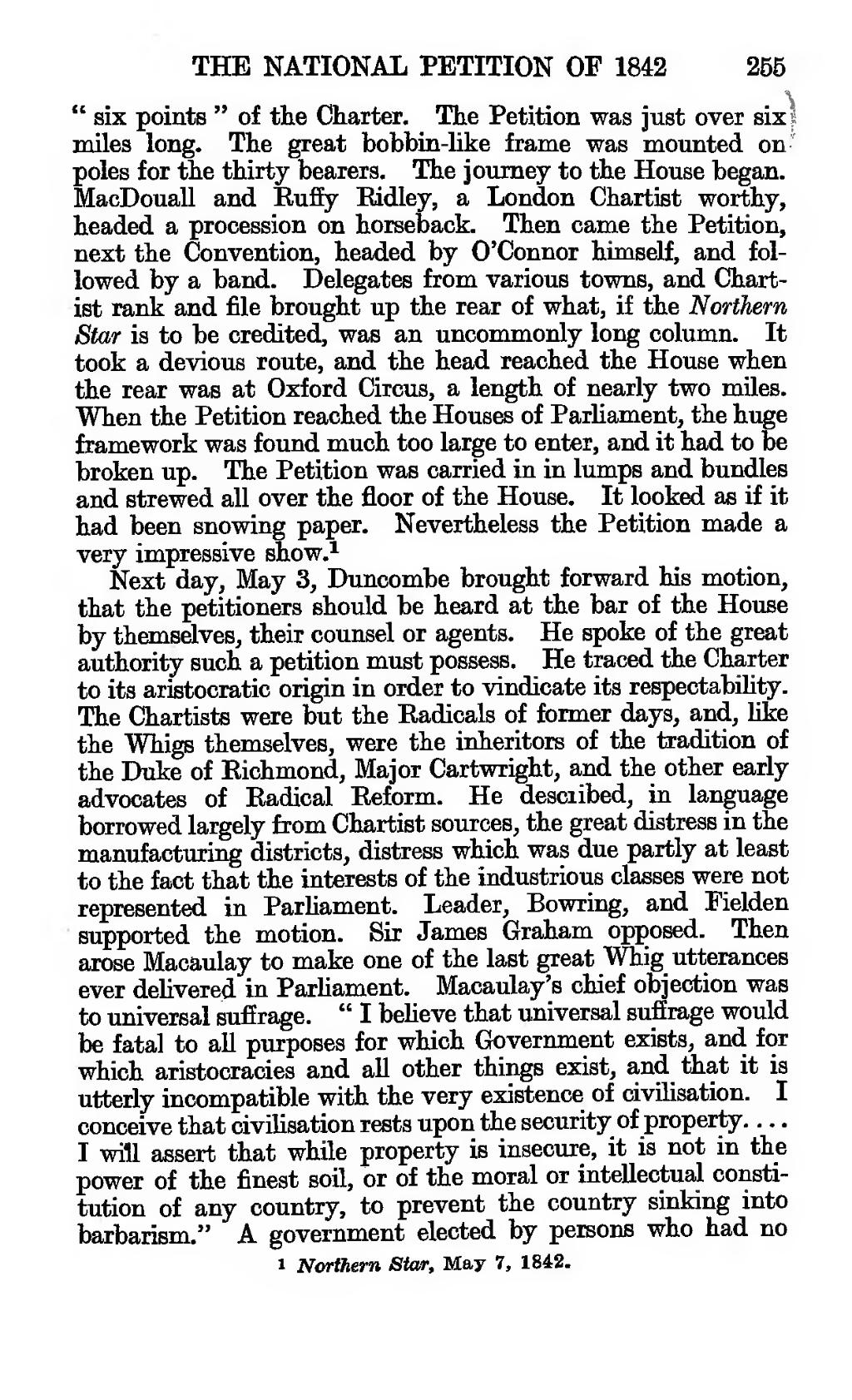"six points" of the Charter. The Petition was just over six miles long. The great bobbin-like frame was mounted on poles for the thirty bearers. The journey to the House began. MacDouall and Ruffy Ridley, a London Chartist worthy, headed a procession on horseback. Then came the Petition, next the Convention, headed by O'Connor himself, and followed by a band. Delegates from various towns, and Chartist rank and file brought up the rear of what, if the Northern Star is to be credited, was an uncommonly long column. It took a devious route, and the head reached the House when the rear was at Oxford Circus, a length of nearly two miles. When the Petition reached the Houses of Parliament, the huge framework was found much too large to enter, and it had to be broken up. The Petition was carried in in lumps and bundles and strewed all over the floor of the House. It looked as if it had been snowing paper. Nevertheless the Petition made a very impressive show.[1]
Next day, May 3, Duncombe brought forward his motion, that the petitioners should be heard at the bar of the House by themselves, their counsel or agents. He spoke of the great authority such a petition must possess. He traced the Charter to its aristocratic origin in order to vindicate its respectability. The Chartists were but the Radicals of former days, and, like the Whigs themselves, were the inheritors of the tradition of the Duke of Richmond, Major Cartwright, and the other early advocates of Radical Reform. He described, in language borrowed largely from Chartist sources, the great distress in the manufacturing districts, distress which was due partly at least to the fact that the interests of the industrious classes were not represented in Parliament. Leader, Bowring, and Fielden supported the motion. Sir James Graham opposed. Then arose Macaulay to make one of the last great Whig utterances ever delivered in Parliament. Macaulay's chief objection was to universal suffrage. "I believe that universal suffrage would be fatal to all purposes for which Government exists, and for which aristocracies and all other things exist, and that it is utterly incompatible with the very existence of civilisation. I conceive that civilisation rests upon the security of property. … I will assert that while property is insecure, it is not in the power of the finest soil, or of the moral or intellectual constitution of any country, to prevent the country sinking into barbarism." A government elected by persons who had no
- ↑ Northern Star, May 7, 1842.
